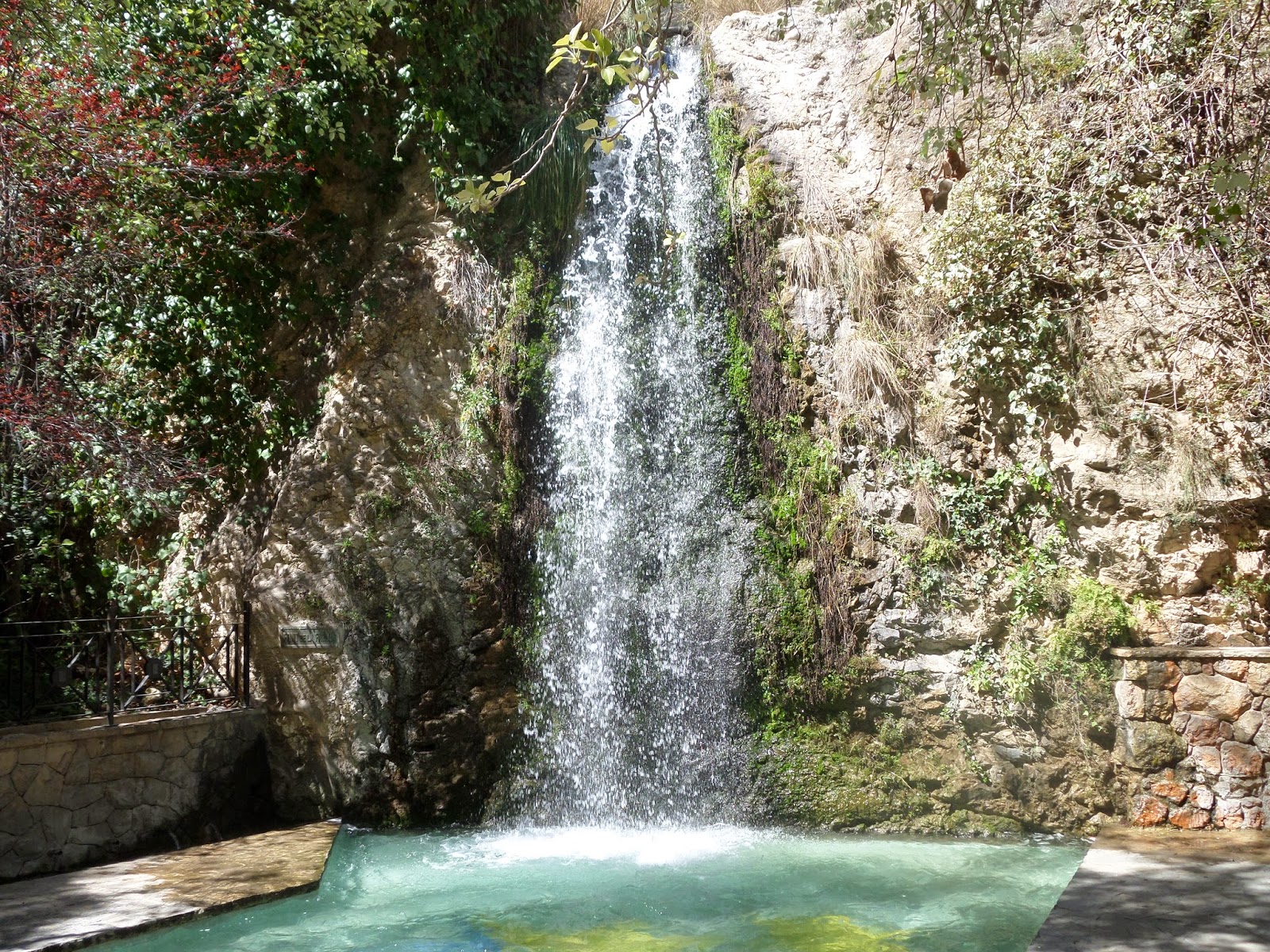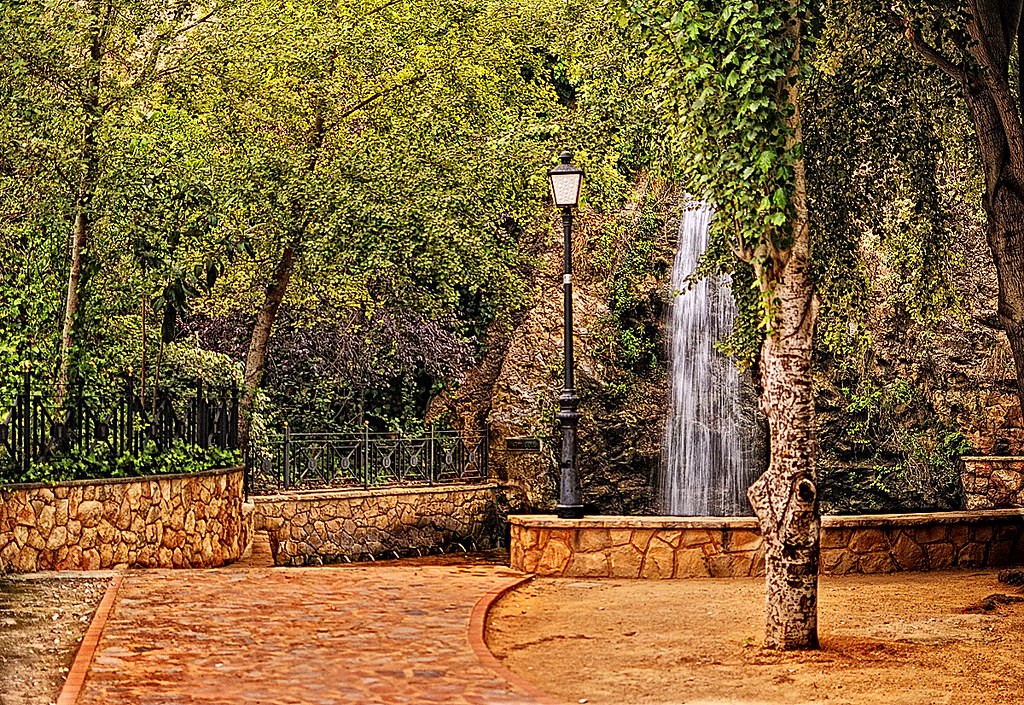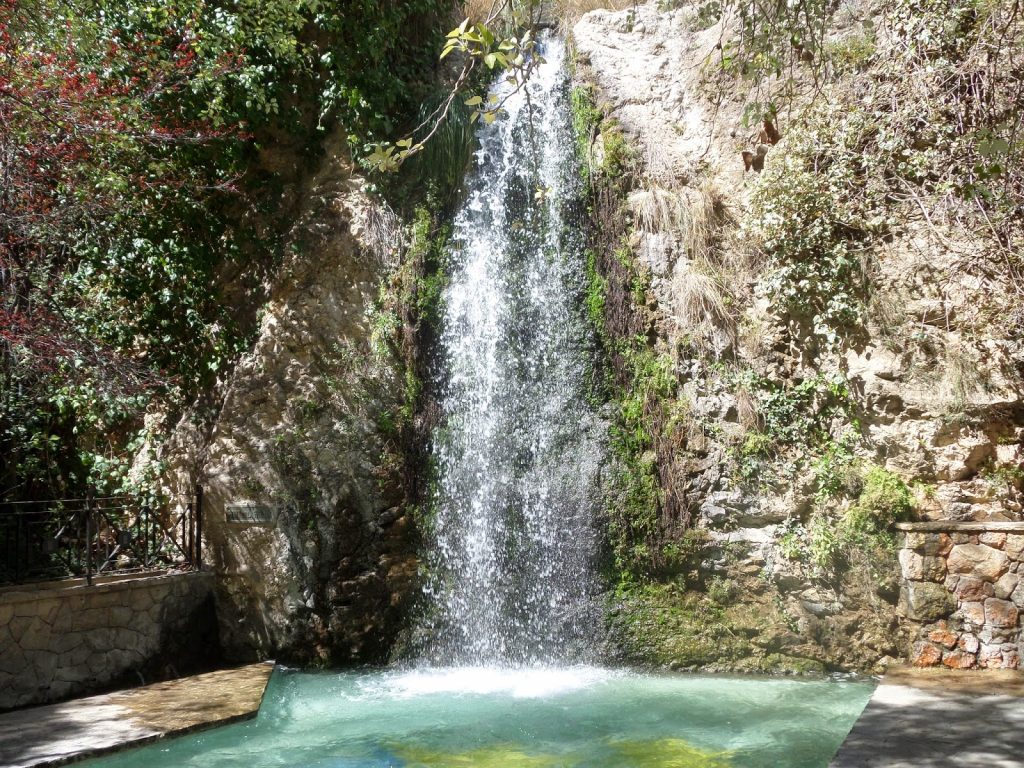
AROUND
Font de la Favara
Sometimes, when we visit tourist areas, the crowds of people and the official guides make us look back at spaces that are well worth a visit and that surprise us with their landscape or history. The province of Alicante is full of these magical little corners and from Camping Almafra, today we want to highlight one of them :
If you are lovers of magic and legends of gods, princesses and witches, you are going to like this small park, the green lung of the town of La Nucía: in the book The Rice Planters by José Amador Asín, we find The Myth de la Favara who tells that, in Celtic times, Roxana, daughter of the governor of La Nucía, was promised in marriage (actually in sacrifice) to the God Kent by a priestess. She, in love with Aituna Ochoa and terrified by her imminent death, rejected the marriage and fled to a ravine in Onosca (La Nucia). The priestess was so angry with the princess that she cast a terrible spell and poor Roxana was instantly turned into stone and her eyes turned into two springs of water. Since that day, the princess’s tears flow without consolation.

It is said that those who drink the water from the waterfall fall madly in love with Roxana and that, in the sound of the falling water, you can hear her laments.

The poor girl’s tears have left us a 5 meter high waterfall that has been flowing for nearly three centuries (so that later they say that there are no eternal loves). The first written reference to the fountain is found in a document from 1748 and it has always been a meeting place for residents since, in addition to being a collection point for water for consumption, it housed one of the two laundries. municipal.
The poor girl’s tears have left us a 5 meter high waterfall that has been flowing for nearly three centuries (so that later they say that there are no eternal loves). The first written reference to the fountain is found in a document from 1748 and it has always been a meeting place for residents since, in addition to being a collection point for water for consumption, it housed one of the two laundries. municipal.

